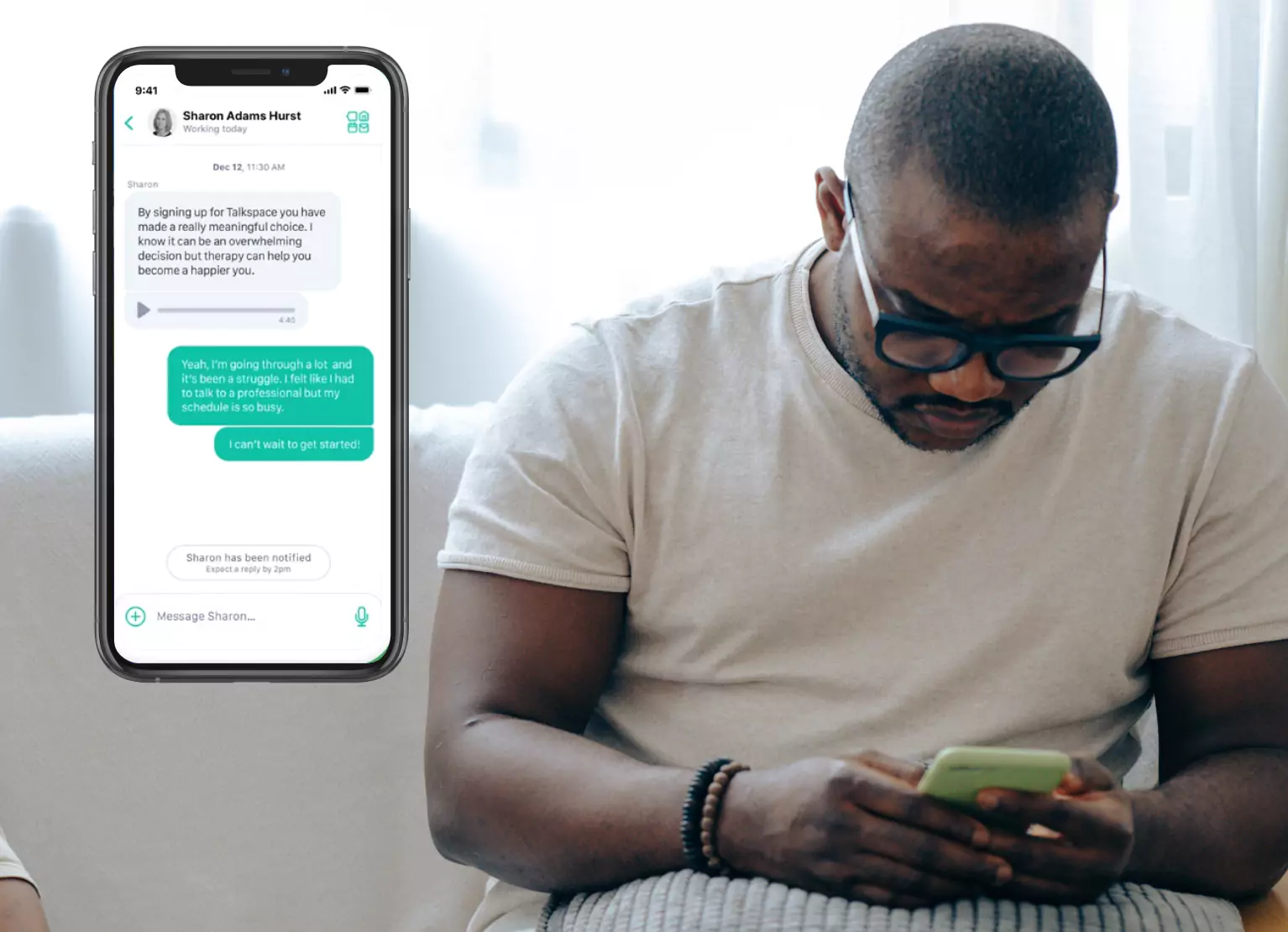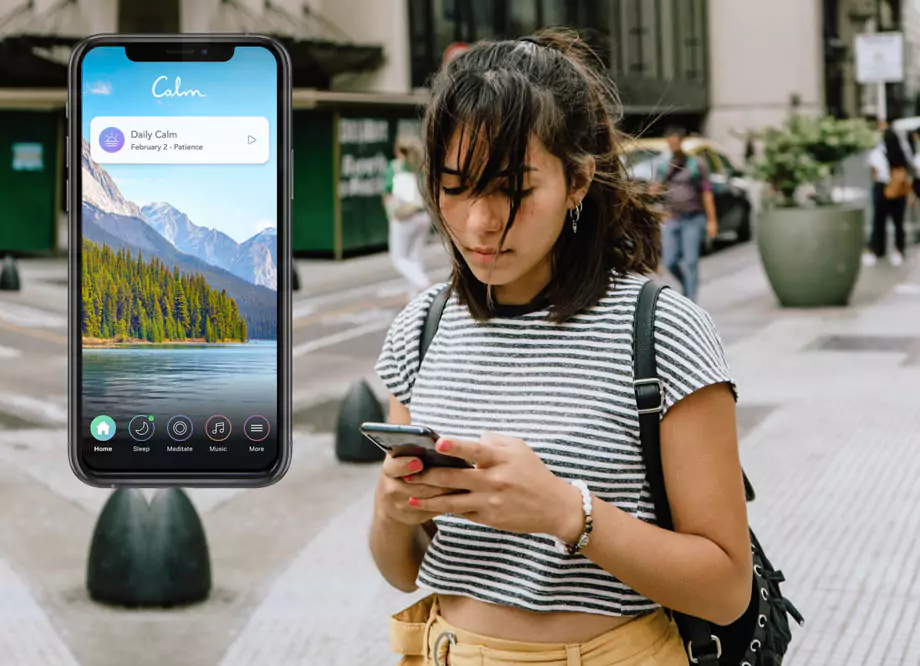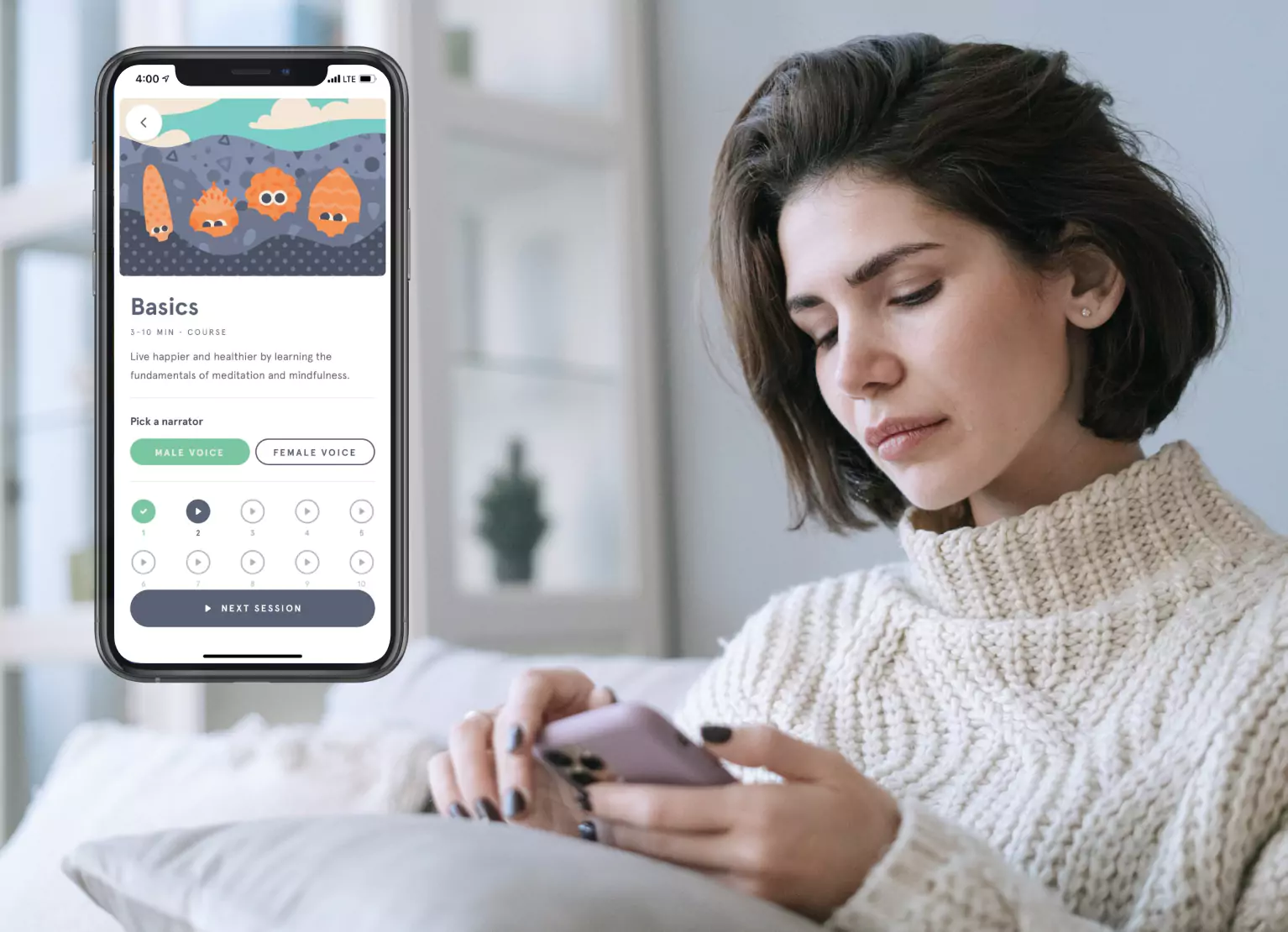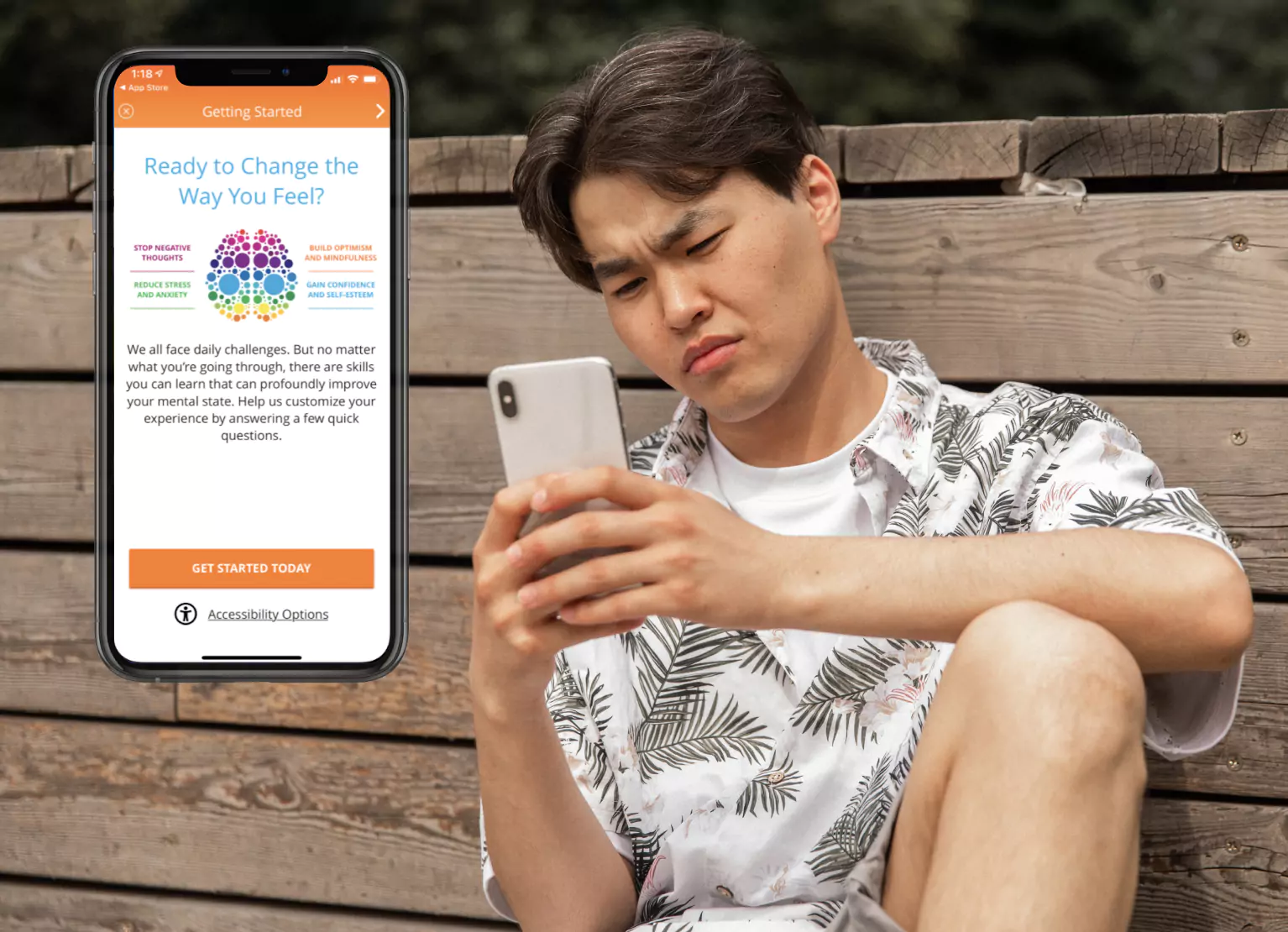Taking Mental Health Online: Tips & Tools for Self-Care

Key Takeaways
Mental health has a significant impact on your health. Aside from the psychological toll of dealing with mental illness, conditions like depression and anxiety can increase your risk of developing chronic diseases. It may be because they can affect your heart rate, blood circulation, stress hormones, and metabolism.
On the flip side, those with chronic illnesses like diabetes are more likely to develop mental conditions like depression and anxiety. So it’s no surprise taking care of your mental health is critical for your overall wellbeing.
Finding Support in Therapy

Seeing a therapist or a mental health professional is a great way to begin your mental health journey, but therapy can be hard to access for many reasons. One of them is a shortage of mental health providers.
Studies show that 77 percent of counties in the U.S. currently experience a mental health provider shortage and that more than 119 million Americans live in these areas. In a country where 21 percent of adults and 49.5 percent of adolescents experience mental illness or disorders, these are worrying statistics. Public health crises like the recent pandemic can often make this situation worse.
Luckily, more mental health resources and tools are available online than ever. There are many ways to use the internet to access mental health services, from mental head podcasts and forums where you can find answers to your questions to support groups for peer support and apps that connect you with certified therapists remotely.
Why Seek Therapy?
Therapy, or psychotherapy, is the process of meeting with a psychologist to work through problems in a safe and non-judgmental environment. In a typical therapy session, a licensed therapist listens to what you have to say and helps you explore changes you can make in your life to increase your happiness or sense of wellbeing.
Therapy is most commonly used to treat mental health conditions, but it can be beneficial even if you aren’t experiencing mental health issues. It can help you reach personal goals, boost self-esteem, encourage self-help practices, break habits, come to terms with changes in your life, or get through periods of depression or anxiety.
For some, mental health care can seem out of reach because of their location or inability to travel to a certified therapist. Here's where the many online mental health tools and apps that can connect you with a licensed therapist for remote sessions can be helpful.
Of course, online mental health resources don’t always have to involve psychiatry. Some include meditation apps that can help with mindfulness or podcasts that help answer popular mental health questions.
What is Mindfulness?
Mindfulness meditation is a type of meditation that involves breathing exercises, guided imagery, and other techniques to cultivate a sense of feeling present and in the moment. It involves focusing on how you’re feeling without trying to interpret or judge your feelings.
Mindfulness exercises can help relax the mind and body, reduce stress and anxiety, and improve general wellbeing. There are many interactive resources and mobile apps like Breethe and UCLA Mindful available for both Android and iOS phones to help you learn more about and practice mindfulness.
What to Consider When Seeking Mental Health Care Online

There are a lot of potential benefits to online mental health care. Online therapy can allow you to access mental health services from home or wherever you’re most comfortable. Mental health apps and websites can be cheaper than in-office visits, especially if you are one of the 28 million Americans without health insurance.
And if you live in an area with a mental health provider shortage, have a chronic illness or disability that makes it hard to leave the house, or struggle to access mental health care for another reason, mental health apps can be a helpful tool.
However, there are some potential drawbacks to be aware of. Credentialed mental health professionals don’t necessarily run mental health apps, and experts or clinicians are often not involved in the development of these apps.
There is also very little conclusive research about the efficacy of these apps. Another potential concern when using the internet as a mental health resource is privacy. Some mental health apps collect your data and sell it to third-party vendors.
Other apps are not password-protected or have vague wording in their privacy policies. They are statements that let you know how the company gathers, uses, and stores your information.
It’s essential to make sure you are familiar with the privacy policy of any application you download, especially because many mental health apps require you to submit sensitive personal information.
Five Popular Websites and Mobile Apps For Mental Health
If you want to explore mental health services offered online, there are many to choose from. Here are five popular resources available right now:
1) BetterHelp

BetterHelp is an app that connects users to licensed therapists. After signing up, the app matches you with a therapist based on your goals and needs.
You can access your therapist through scheduled live text, phone, or video sessions. Sessions cost between $60 to $90 per week and are billed every four weeks. They do not currently accept health insurance.
Make sure you read and are comfortable with their privacy policy before hopping on board.
2) Talkspace

Talkspace is another app that provides access to licensed therapists. After completing a mental health assessment, you will be able to choose a therapist from a list of licensed providers and begin sessions with them remotely.
Talkspace is a subscription-based service, and the cost varies depending on where you live and what provider you choose to work with, but their fees tend to be much cheaper than traditional in-person therapy.
They accept a wide variety of insurance plans, but they do not currently accept Medicaid or Medicare.
Before downloading Talkspace, read their privacy policy to learn how this app collects and uses your data and information.
3) Calm

Calm is an app for sleep, meditation, and relaxation. They offer over 250 guided meditations, sleep stories, visualizations, and movement exercises available in seven languages.
A popular feature is a daily ten-minute mindfulness exercise called “The Daily Calm,” which has a different theme or topic every day.
They also offer music to listen to while you meditate and special programs for beginners, like their “7 Days of Calm” and “21 Days of Calm” series. The app is free to download, and some content is free. But most of the content requires a premium subscription.
They do offer a seven-day free trial, after which it costs $69.99 for a year’s subscription or $14.99 per month. Before downloading Calm, make sure to familiarize yourself with their privacy policy.
4) Headspace

Headspace is an app that helps you practice mindfulness and meditation. The app offers guided meditations for relaxation and sleep, movement exercises, and music and sounds for focus.
They have some free content on their website, but most is only available with a paid subscription. They currently offer a seven-day free trial, followed by a cost of $12.99 a month.
They also have the option of selecting a 14-day free trial if you choose the annual subscription option, which costs $69.99 a year. Before downloading Headspace, make sure to familiarize yourself with their privacy policy.
5) Happify

Happify is an app that uses cognitive-behavioral therapy and positive psychology philosophies to encourage users to change negative thought patterns and habits. They offer activities, exercises, and educational tools geared toward living a happier life and increasing your sense of wellbeing.
Happify prides itself on being science-based, and all of the activities include a section about the science of the practice. They also offer a “Community” hub where you can connect with other users for encouragement and a sense of community.
There is a limited, free version of the app, and the monthly subscription costs $14.99 per month or $139.99 per year. Make sure to read their terms before downloading the app.
Online Resources for Accessing Mental Health Services
Aside from apps that connect you directly with therapists or mental health resources and support groups, there are several ways to use the internet to access mental health services. Here are just a few:
- The Substance Abuse and Mental Health Services Administration (SAMHSA) has a Behavioral Health Services Locator. This anonymous and confidential service helps you find treatment facilities near you by typing in an address, city, or zip code.
- Mental Health America has several tools and resources for people who need help with their mental health, from advice about navigating the mental health system and maintaining your agency with your health provider to securing housing during a mental health crisis. You can use their affiliate search to find a location near you that can help you find affordable mental health services in your area. Their website also has a comprehensive list of organizations that provide treatment referral services and those that serve specific demographics.
- The American Psychological Association’s Psychologist Locator and the National Register of Health Services Psychologists’ Find a Psychologist feature can help you find a mental health provider in your area.
Your mental health is essential, and there is a lot you can do to take control of it. If you require immediate support, you can reach the National Suicide Prevention Line 24/7 at 1-800-273-8255 for free and confidential support and crisis resources.
You can also reach the Crisis Text Line by texting HOME to 741741 to connect with a crisis counselor or contact the NAMI hotline by calling 800-950-NAMI or texting NAMI to 741741 to be connected to a trained crisis counselor for free.
Find the right Nutrisense programto turn insight into progress.
Go Beyond Glucose Data with Nutrisense
Your glucose can significantly impact how your body feels and functions. That’s why stable levels are an important factor in supporting overall wellbeing. But viewing glucose isn't enough. Nutrisense, you’ll be able to learn how to use your body's data to make informed lifestyle choices that support healthy living.
One-to-one coaching
Sign up to access insurance-covered video calls to work with a glucose expert: a personal registered dietitian or certified nutritionist who will help tailor your lifestyle and diet to your goals.
Monitor and measure what matters
With the Nutrisense CGM Program, you can monitor your glucose with health tech like glucose biosensors and continuous glucose monitor (CGM)s, and analyze the trends over time with the Nutrisense App. This will help you make the most informed choices about the foods you consume and their impact on your health.
Find your best fit
Ready to take the first step? Start with our quiz to find the right Nutrisense program to help you take control.

Carlee's training at Western Illinois University and an internship at the Memphis VA Hospital lead her to a career in outpatient counseling and bariatric nutrition therapy. In these positions, Carlee realized many of the disease states (upwards of 80%!) her patients experienced were actually preventable. She knew she had to dig deeper into preventative health and has since been passionate about helping people translate this complex glucose data into actionable changes anyone can implement into their everyday lives.




